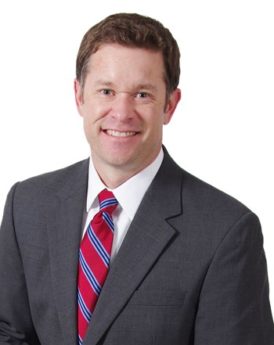HOME | ABOUT US | MEDIA KIT | CONTACT US | INQUIRE
HOME | ABOUT US | MEDIA KIT | CONTACT US | INQUIRE
Michael Sonnenberg is a commercial real estate realtor at NAI Heartland, in Overland Park, where he is primarily focused currently on office and medical office properties.
Q: How does the COVID-19 situation compare to the Great Recession and the challenges commercial real estate faced during that time?
A: We’re basically wrapping up month number one in this situation, and people are still cautiously optimistic for a variety of reasons. The Midwest might not be hit as hard as some of the more populated areas. There will be more of a pause than it will be a healthy step backwards. In general, people have a fairly healthy amount of optimism that commercial real estate won’t be affected to the degree that it was in the Great Recession. Hopefully we’ll have a better picture a month from now, at the end of May.
 Q: Is the commercial real estate industry in a better place than it was back then when there might have been overbuilding and the overpricing of assets?
Q: Is the commercial real estate industry in a better place than it was back then when there might have been overbuilding and the overpricing of assets?
A: There was a large part of the community that was waiting for the ongoing bull market to end. Any time you have that, there is an emotional factor that makes everybody take a deep breath and slow things down. The question is: How long does that deep breath last? That’s what’s hard about this experience that we’re all going through. Is it a six-month deep breath, or is it an 18-month pause? That remains to be seen. From a public-heath standpoint, everyone hopes that it’s shorter than longer.
Q: Nationally, it seems as though there are a lot of opportunistic buyers out there sitting on a lot of capital that have been waiting for the right buying opportunities. Are you seeing that here?
A: We haven’t seen that as much, which is not unusual for the Midwest. We don’t have that initial push of opportunistic buyers. Most of what I’ve heard from commercial real estate owners over the past month is that the local banks are working hard to be flexible with the owners here. In return, the owners are willing to be flexible with modifying the agreement down the road. Hopefully that continues to be the case.
Q: Do you see any kind of difference with how creative-office and shared-office environments will be treated after we get through this, due to social distancing?
A: I don’t see it impacting the creative-office space. On the timeshare-space providers, I do think, because of the pause, there could be a short-term dip in demand, but I see that coming back, purely from a function of people preferring to work outside of their home rather than a basement office or a portion of their master bedroom. It comes down to productivity, and I believe that people like having an office to go to regardless of creative space, conventional offices or share space. People still find more productivity in an away-from-home office environment.
Q: What’s happening in the medical-office space? Is there any upside right now?
A: It’s hard to say. It’s still a function of the Baby Boomer-demographic push for acquiring more healthcare, and that’s driving an expansion of more hospital-owned practices off campus to have more accessibility and convenience for their patients. I don’t see a big change there.
Q: So, how do you see commercial real estate in Kansas City going forward?
A: That’s a tough one because we’re still in this “deer in the headlights” mode. But overall, what’s been encouraging has been the willingness of both landlords and tenants to cooperate to find a mutually beneficial solution. People aren’t interested in finding a villain or a bad guy in this situation. They want to figure out how to work together so that when we come out of this, everybody wins. That’s been encouraging.